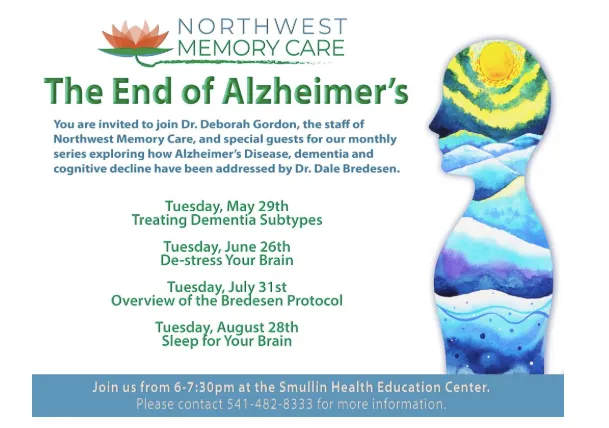
The End of Alzheimer’s talks, please join us!
Hope to see you at our series of public talks in Medford!
The presentation will always last about an hour, with plenty of time for questions.
General public welcome, no charge.!
The last Tuesday of each month
Smullin Center at Asante Rogue Regional
6:00 p.m. to 7:30 p.m.
See you there!

